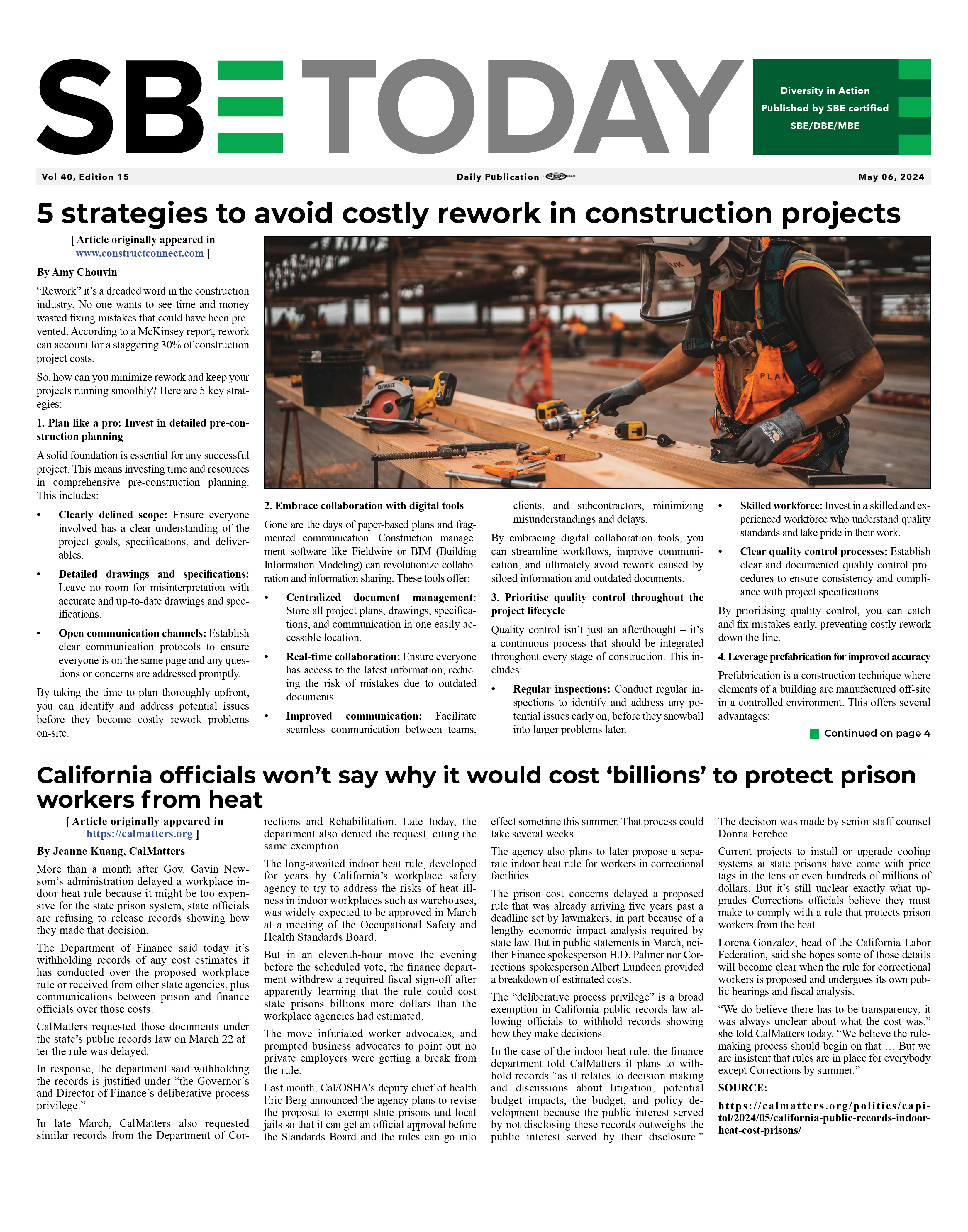Native American Contractors Association
04/23/2024
 By NACA By NACA
Editor’s note: We encourage you to get to know the Native American Contractors Association (NACA). Below is content from their website. Please visit for more information.
Native American Contractors Association (NACA) exists for tribally-owned businesses, Native Hawaiian Organizations, and Alaska Native Corporations to collaboratively protect our contracting rights and access to business development through advocacy and education.
 . .Our mission is to enrich self-determination through preservation of government contracting participation based on the unique relationship between Native Americans and the federal government. Specifically, NACA seeks to protect the rights of Native American communities to achieve economic self-sufficiency through government contracting.  . .
With respect to our mission and purpose, NACA champions all necessary efforts to protect, preserve, and strengthen the contracting rights granted to its members under federal law. We provide solidarity and member value in all that we do, using the principles of respect, fairness, unity, inclusiveness, and synergy. NACA stands as one in unison with our members, as we work tirelessly to provide essential services necessary to sustain and safeguard our communities.
NACA’s members capably serve their federal customers domestically and internationally. All NACA members leverage their positions as federal contractors to reinvest their profits and expertise in Indian country, thereby enhancing tribal economic self-determination and the lives of their respective community members.
Recent and Ongoing Advocacy
In December 2023, twelve leading Native organizations—including the Native American Contractors Association—announced that they have joined together to develop companion economic policy briefs focused on concrete steps congress and the Biden Administration can take to boost tribal economies and Native-owned businesses. The briefs were developed in the course of several months, with input from endorsing organizations that span Indian Country, and shared in November at the National Congress of American Indians Annual Convention and Marketplace in New Orleans.
The focus areas of the briefs include access to capital, tax policy, energy development and land management, infrastructure, agriculture, support for small businesses, and international trade. Each brief details specific legislation, rules, interagency coordination, programs, and other steps needed to help tribal nations and Native-owned businesses enhance their economic growth.
The policy briefs, as well as supporting documents, are permanently available on The National Center for American Indian Enterprise Development’s website. They were also featured in a segment aired recently on Marketplace Morning Report.
“Strong and resilient economies are vital to strengthen tribal sovereignty and self-determination. We look forward to working with our partner organizations to advance these shared economic development priorities with congress and the Biden Administration; speaking with a unified collective voice is important to advance and protect the needs of Native communities across the country,” stated Quinton Carroll, executive director of the Native American Contractors Association.
Signing on to the briefs were:
Across Indian country, tribal nations are forging impressive records of economic progress. From operating nation-owned enterprises to cultivating tribal citizen-owned businesses to preparing their people to access new job opportunities through workforce education and training, tribal nations are methodically building sustainable economies to support thriving Native communities. Driving this remarkable yet uneven renaissance is tribal self-determination, specifically, the responsibility each tribal nation exercises to create a robust economy based on its cultural values, particular circumstances, and long-range priorities. To support tribal nations, the federal government must fulfill its binding trust and treaty obligations to take key actions to foster—and remove the barriers impeding—their economy-building efforts.
Source:NACA
Back To News |
|
|
|
|
||
|
© 2024 Small Business Exchange, Inc. |
||







